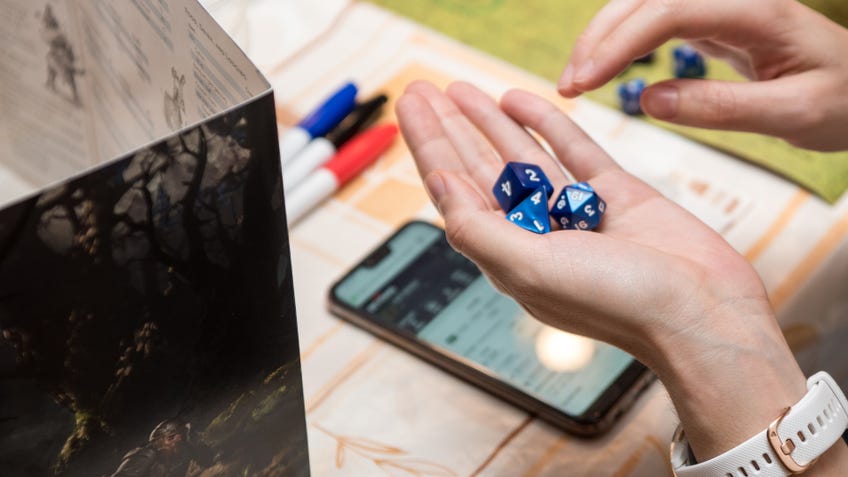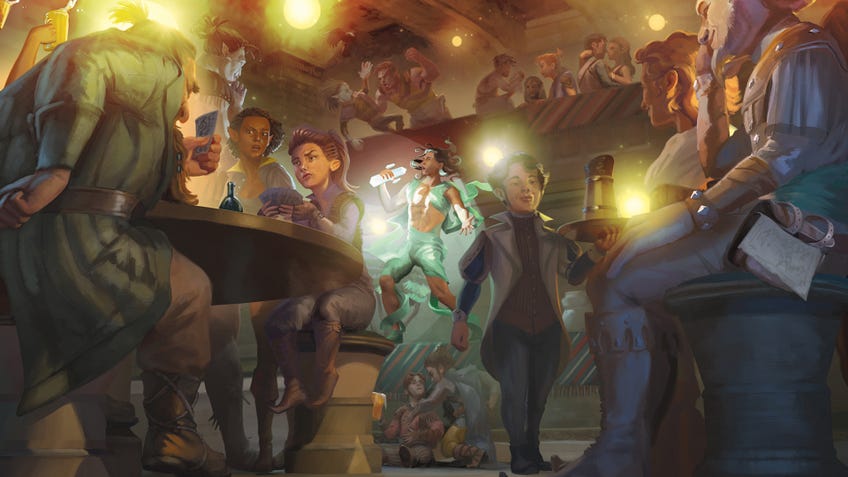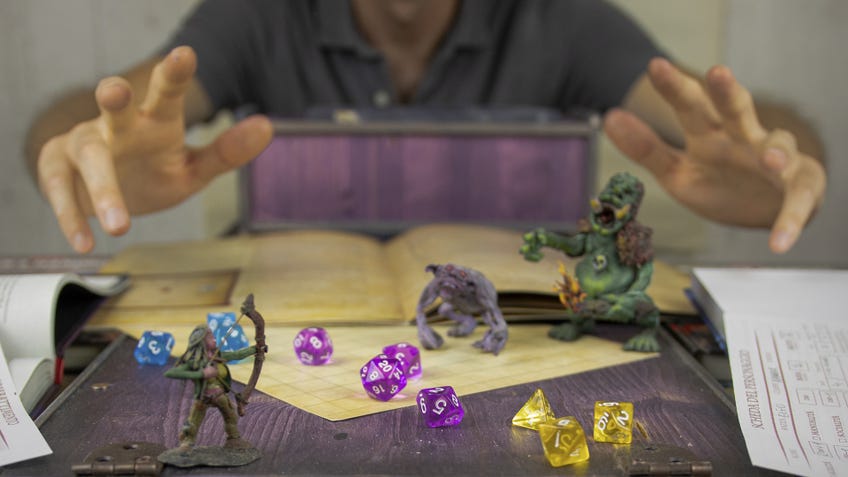As an autistic GM, tabletop RPGs provide a perfect structure for social interaction
Things that make life difficult for me outside of the game room often make for better sessions in it.
Imagine you’re at a party where everyone is playing a game you don’t understand. You’re trying to parse the game’s apparently fluid rules yourself, but it’s like trying to play through a tutorial in another language. Everyone else seems to have clocked the rules, but you’re struggling to make sense of any of it.
People keep glancing at you strangely when you stumble over a particular boundary and, while you’re too confused to glean exactly how, you can tell you’re making mistakes. Even your newfound hypervigilance about those errors is, itself, an error. The resulting sensation - at least for me - can be politely described as “not pleasant”.
Imagine the relief you might feel when someone finally hauls out a rulebook for another game whose guidelines are less nebulous, slaps it down on the table and says: “This is what we’re playing.”
That’s what it’s like for me when I slip into the game master’s chair for any particular tabletop RPG.
Autism manifests in different ways for different people. For me, my autism transforms even the most basic conversations into trap-filled labyrinths, one missed social cue or ill-understood bit of body language away from disaster.
I don’t pick up very well on hints or subtext, and I know I don’t pick up very well on hints or subtext, so I’m constantly on the hunt for signals that I’ve missed some crucial detail, which exhausts everybody in a given conversation. Did I talk too much? Did I talk too little? What was that look? What is their body language saying? It’s like trying to decipher, on the fly, a language that makes sense to everyone but me.
But then I log in to my virtual tabletop, I send out the Discord mention to get everyone in chat, I pull up the battlemaps, I practise a few variations of Cockney accents and I get to work. Suddenly I’m right where I should be, exactly in my element. I’m not some nervous wreck who can’t get through a conversation without wondering if somebody hates him; I’m the storyteller, I’m the actor, I’m the writer, I’m the physics engine.

When I’m knee-deep in running a combat encounter, immersed in a culture I understand and love, things are different. The rules are laid out ahead of time: this is what happens when you roll above this number, this is what happens when you don’t. This is what happens when you cast this particular spell, that is what happens when you cast this other spell.
GMing is a situation where “Are you enjoying yourself?” and “Am I doing a good job?” aren’t taboo, strange questions - they’re part and parcel of the process.
A lot of the social contract becomes clearer, too, thanks to agreed-upon, openly discussed norms and expectations during Session Zero. I’m less worried about stepping on someone’s toes because we’re in a situation where I’ve asked that feedback be as immediate and forthcoming as they can manage. A situation, in short, where “Are you enjoying yourself?” and “Am I doing a good job?” aren’t taboo, strange questions - they’re part and parcel of the process.
Playing an RPG together provides me with a framework in how to interact with people. Running the RPG myself gives me an excuse to help build that framework in the first place. It’s much harder to get lost in a maze you helped create.
A good tabletop roleplaying session doesn’t just shore up my weaknesses, though - it exemplifies my strengths. Things that make life difficult for me outside of the game room often make for better sessions in it.
It’s much harder to get lost in a maze you helped create.
My tendency to hyperfocus on things like divinity and magic systems in fictional settings means my own homebrew settings are fleshed-out and fully realised. My constant appraisal of why people are acting the way they do helps me build interesting, deep characters quickly. My habit of practising conversations over and over well before they actually happen translates to an improv game that could shame amateur comedians everywhere.
Playing storyteller for a group of people turns so many of the things that confuse and alarm me into things that delight and surprise my friends. While the practice doesn’t make any of those habits healthy - discussing fantasy fiction with me will always prove a chore for everybody involved, including me - it’s a relief to know that these aspects of my addled brain can be put to good use.

My autism is always going to be a part of how I interact with the world. Every social encounter, forever, is going to be at least a little confusing, and there’s always going to be an element of anxiety when it comes to interacting with and understanding other people.
But running a tabletop RPG sits at an intersection where all my talents and quirks come together to make me the world’s most engaging physics engine for a few hours a week, and that helps me manage my brain the rest of the time.


